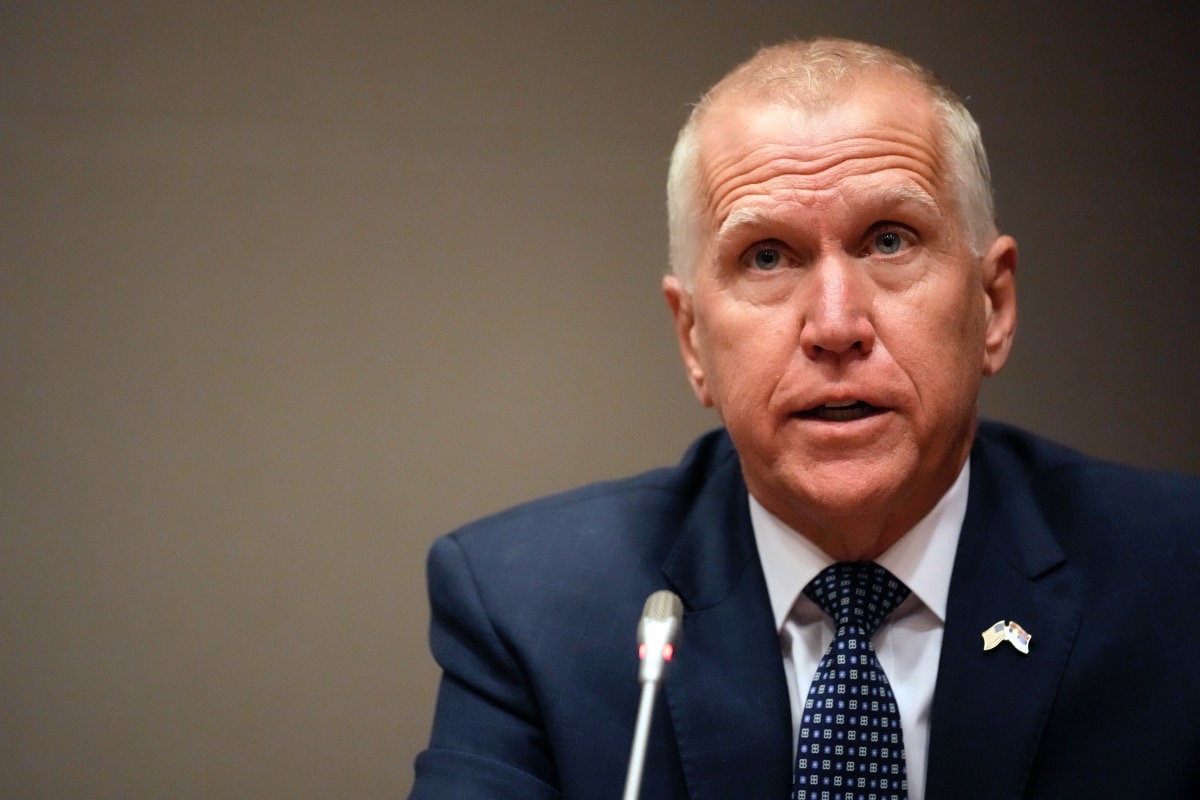

U.S. Senator Thom Tillis, R-NC (AP Photo/Darko Vojinovic)
WASHINGTON, D.C. — A bipartisan group of four senators —two Democrats and two Republicans— has been meeting to find consensus on an immigration bill that can get 60 votes to pass the Senate.
After the collapse of the Build Back Better Act late last year —and the immigrant relief provisions therein— four senators on the Judiciary Committee have taken it upon themselves to try to find common ground.
The two Democrats —Majority Whip Dick Durbin (IL) and Sen. Alex Padilla (CA)— have been tight-lipped with reporters about the closed-door immigration policy meetings, the last of which was held Tuesday.
The two Republicans —Sens. John Cornyn (TX) and Thom Tillis (NC)— have been more open than their Democratic counterparts when fielding questions about their priorities in the bipartisan talks as well as the state of the negotiations.
With Cornyn in Texas on Wednesday and Durbin and Padilla offering few words to repeated inquiries from the press about the bipartisan negotiations, Latino Rebels caught up with Tillis who graciously shared where the immigration discussions are now and where they may be headed next.
LATINO REBELS: Hello, Senator. Some questions about the bipartisan immigration negotiations: So basically we have a pretty good sense so far that, broadly, border enforcement is a priority for Sen. Cornyn …
SEN. THOM TILLIS: Yes, and me.
LR: Got it. And has there been any talk about relief—and in particular, an amnesty or something like it for undocumented folk?
TILLIS: We haven’t gotten to that because we’re dealing with the issues that we have with asylums and the two-million [immigrant] flow last year, plus the estimated three-million flow this year … I think there’s a growing consensus that that’s gotta be managed. So having meaningful discussions around that is really a cornerstone to the foundation of any other discussions…
And there will never be an amnesty … Need to make that very clear … Big capital letters: NOT AMNESTY.
If we want to talk about the DACA population, those sorts of things, and some paths, but there would never be a scenario because the only time that we’ve done it en mass before was in the Reagan administration, and it was an absolute failure. In some part, it’s contributed to the border crisis that we’re dealing with today. So we have to have a serious border security plan, and that includes increasing capacity for legal crossing for commerce, to give more regional processing centers for CIS, those sorts of things. You can deal with the capacity, but we have to have a policy that sends a very clear signal that it’s not wise to cross the border illegally and claim asylum when we know the majority of the asylum claims are going to be adjudicated as not being valid.
So that’s where we’re focusing the discussion … and that’s all we’ve done for the meetings we’ve had up to this point.
LR: So it’s basically been a discussion of restrictions so far of mostly border enforcement and restricting asylum. Is that right?
SEN. TILLIS: No, what we all agreed on is that we need to be more methodical in the approach. So let’s deal with the one where we’re farthest apart first and then build on it when we’re substantially complete with the four corners of legislation that we’ve formulated around it. But if we can’t make progress on this, we won’t make progress on the remainder.
LR: What about the legal immigrant backlog population? Have they come up at all?
SEN. TILLIS: So we talked a little bit about it. It will come up in the next phase, but it’s not in the discussion now. The one thing that I’ve really enjoyed about this process is that we’ve kept it into this one—what I would call in methodology terms, finish-to-start. We have to finish foundational discussions here before we should start any other ones, because all the other ones are irrelevant if we can’t get it right on stemming the future flows. Okay?
LR: Thank you, Senator.
SEN. TILLIS: You bet.
***
Pablo Manríquez is the Washington correspondent for Latino Rebels. Twitter: @PabloReports


